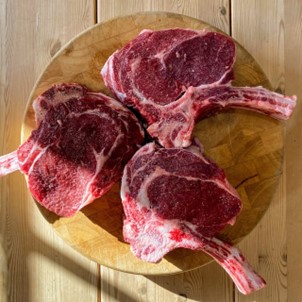Mike Shouhed of Los Angeles is a wellness enthusiast and entrepreneur in the industry. In the following article, Mike Shouhed unlocks the potential for a vibrant, nourishing diet through lean meats, dairy, and the natural carbohydrates found in some fruits.
Navigating the landscape of nutrition can feel akin to navigating a maze. With a proliferation of fad diets, miracle superfoods, and conflicting advice, understanding the basis of a healthy diet seems to require an advanced degree. Yet, underneath all that chatter, the basic principles of nutrition stay steady, guiding us toward a balanced, healthy diet.
So, what’s the best ratio? How does someone find the right nutrient dense profile that works for them? Mike Shouhed of Los Angeles explains that this means getting an adequate intake of protein, healthy fats, carbohydrates, and staying hydrated to maintain a healthy body weight.
Below, Mike Shouhed sheds light on the core tenets of a protein heavy diet.
Protein Builds and Repairs Muscle
Protein is known as the building block of life. It is essential for the growth, repair, and maintenance of the body’s muscles and tissues. Mike Shouhed of Los Angeles explains that by consuming an adequate amount of protein, such as lean, grass-fed organic meats, eggs, and dairy products, the body is provided with the necessary amino acids to support muscle and tissue growth and repair.
Promotes Muscle Development and Strength
Protein is particularly important for individuals engaged in physical activities or exercise. It plays a crucial role in muscle development and strength and helps to speed recovery from intense workouts.
Mike Shouhed of Los Angeles says that regular intake of protein helps to optimize muscle protein synthesis, promoting muscle growth, recovery, and maintenance. When combined with resistance training, a protein-rich diet can help individuals achieve their fitness goals.
Weight Management
Including lean proteins from meat and dairy products in a diet can contribute to better appetite control and weight management. Lean meats have been found to promote feeling satisfied and reduce hunger cravings. When a person feels fuller for longer, they are less likely to overeat or consume excess calories, which helps support weight loss or maintenance goals.
Benefits of Raw Dairy
Mike Shouhed notes that raw dairy products such as raw cheese, Kafir, and milk products are excellent sources of calcium. Calcium is essential for maintaining strong bones and teeth, preventing conditions like osteoporosis, especially in women. By keeping a focus on dairy, especially raw dairy products within the diet, individuals can ensure an adequate intake of calcium, promoting optimal bone health and reducing the risk of fractures and may even reduce the symptoms of some health issues.
There have been numerous studies on raw milk that have been shown to reduce the effects of asthma, allergies, eczema, and respiratory infections. Raw milk can also help aid in recovery from long-term antibiotic use and provides numerous gut-healthy probiotics and enzymes.
Nutrient Density
Protein and dairy are nutrient-dense foods, meaning they provide a significant amount of essential nutrients in proportion to their calorie content. They are excellent sources of vitamins and minerals, such as zinc, magnesium, vitamin B and phosphorus, among others. Incorporating protein and dairy into meals enables individuals to meet their nutrient requirements more efficiently.
 The Vital Role of Hydration
The Vital Role of Hydration
Mike Shouhed says that often taken for granted, hydration holds a fundamental place in nutrition. Water, which makes up about 60% of the human body, is critical for various functions, from temperature regulation to waste elimination.
The U.S. National Academies of Sciences, Engineering, and Medicine recommends a daily water intake of 15.5 cups (3.7 liters) of fluids a day for men and 11.5 cups (2.7 liters) for women. However, globally, water consumption data indicates that many people fall short of these recommendations.
The Art of Balance and Moderation
While individual nutrients play crucial roles, balance and moderation are still vital to a healthy diet. Moderation of healthy foods is just as important as limiting unhealthy foods. Consuming 5000 calories of wholesome food will likely set a person backwards on their road to health.
Keeping an “energy balance” by eating roughly the same number of calories expended by physical activity is key to maintaining a healthy body weight and preventing health complications.
Mike Shouhed Real Estate notes that overconsumption, even of healthy foods, can tip the scales toward weight gain and related health problems. According to the World Health Organization, over 1.9 billion adults were overweight in 2016, with over 650 million being obese.
Summary
The essence of a healthy diet lies in a balanced intake of the micro- and macronutrients found in organic, grass-fed lean meat, raw dairy products, and fruit. But individuals should keep in mind that even healthy foods should be consumed in moderation, and in appropriate portion sizes.
A diet rich in protein and raw dairy offers numerous benefits for overall health and wellness. From supporting tissue repair and muscle development to weight management, bone health, and nutrient density, protein, and dairy play vital roles in a balanced diet.
However, it is essential to consider individual dietary needs, preferences, and any specific health conditions when incorporating these foods into a daily routine. Consultation with a healthcare professional or registered dietitian can help personalize specific dietary needs to optimize individual wellness and overall health.








